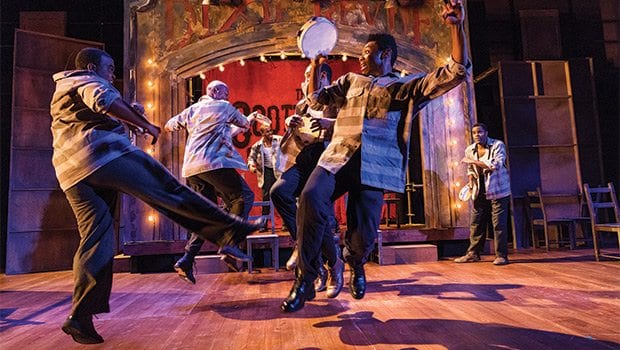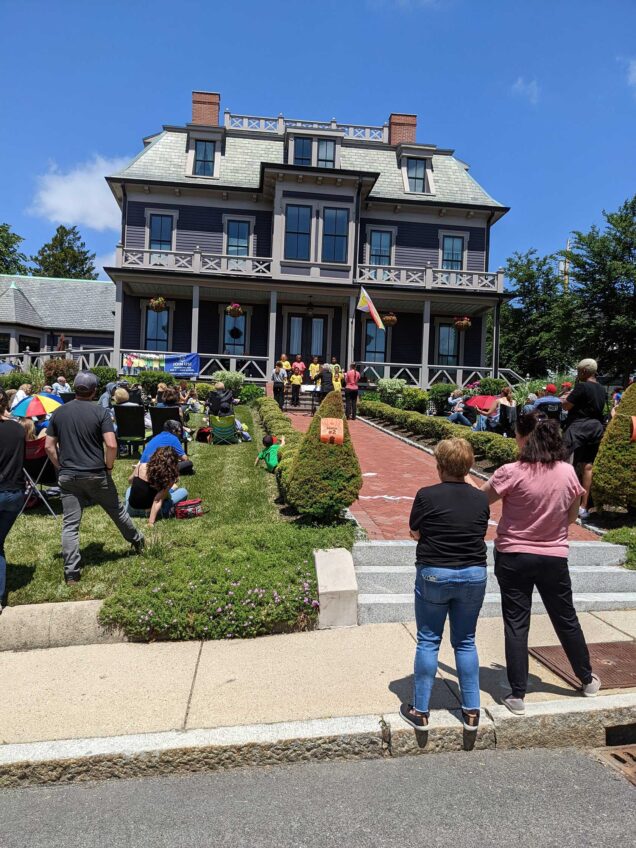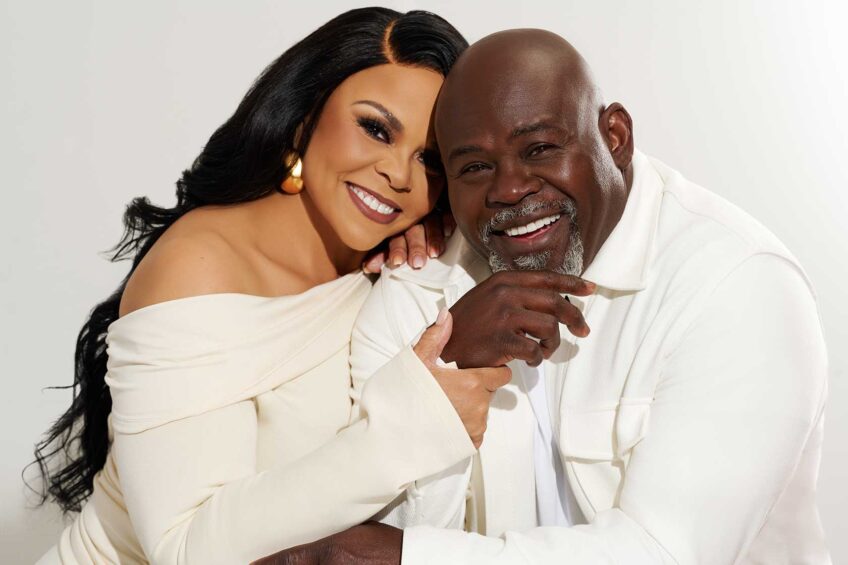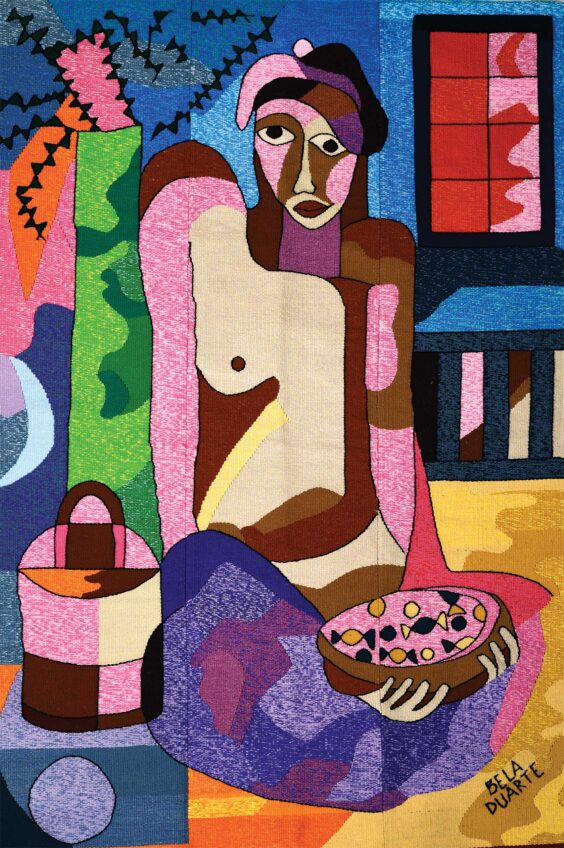
Boston is growing its reputation as a hotbed of edgy, contemporary theatre. But SpeakEasy Stage Company makes a bold, unexpected move by bolstering that trend with a minstrel-style musical. “The Scottsboro Boys” tells the true story of nine African American teenagers who were wrongfully accused of rape in 1934. The legal turmoil that followed destroyed not only the lives of the boys, but also any felt sense of security in the black community of the South.

Author: Photo: Nile HawverBrandon Green and Maurice Emmanuel Parent in Speakeasy Stage’s production of “The Scottsboro Boys.”
Written by John Kander, Fred Ebb and David Thompson, the story is told through the framework of a minstrel show, which is an extremely controversial move. African Americans historically have been mocked and demeaned in show business through the practice of minstrel shows that reduce them to comedic tropes. But here, the play reappropriates this tradition to highlight the abuse of the population. In one scene the protagonist Haywood tells a fable about a boy named Billy who lied too much. But then the childlike story becomes sharply real when Billy is lynched and then forced to take the back door into heaven.
The actors deliver a poignant, devastating performance. De’Lon Grant’s Haywood paints the heart-wrenching portrait of a man pushed to the edge of his humanity, desperately demanding dignity. This performance is particularly relevant in a world where police brutality and race riots once again have become regular, front page headlines. “The Scottsboro Boys” features an all-black cast, with the exception of Russell Garrett, who expertly plays the controlling interlocutor and master of the minstrel troupe. Garrett walks about the scenes, demanding jazz hands and big smiles from a group of men who are rotting in jail because of the color of their skin. By the end of the show, their unrest has grown too strong, his commands no longer affecting them.
This is not a happy story, as the actors tell you upfront. Nor does it end happily. In the final scene, the nine boys stand in front of the audience in blackface, announcing their fates. Haywood dies in prison. Many of the freed boys commit suicide from the injustice of it all. Others waste away in addiction, dwelling in states where discrimination still runs rampant. This scene is a radical seizure of the techniques used to oppress African Americans, and a stark statement on the damage they have done.
Perhaps that most horrifying part of the story is that it’s true. The harshness of this show illustrates that art, even musicals, is not about rainbows and sunshine. It serves as a reflection of the real world and often that world isn’t a pretty one.
An abusive prison guard says to the boys early on, “Now it’s just a matter of how they remember you — if they remember you.” Many of the lynched black men are not remembered at all. But “The Scottsboro Boys” helps remind us of the violent past that continues to haunt this country. It also reminds us that what we share — despite skin color, despite station — is humanity, and it would serve us well, even now, to act accordingly.







